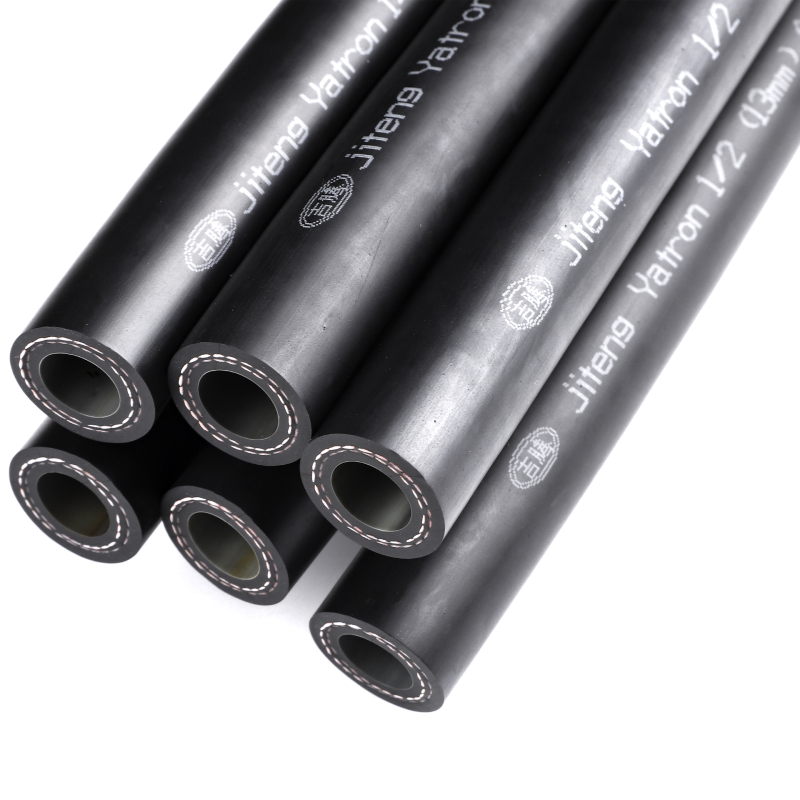gas fuel hose
Dec . 06, 2024 11:28 Back to list
gas fuel hose
The Importance of Gas Fuel Hoses in Modern Applications
Gas fuel hoses play a crucial role in the transportation and delivery of various types of fuels, including gasoline, diesel, natural gas, and propane. These hoses are essential components in automotive, industrial, and domestic applications, ensuring that fuel is safely and efficiently moved from one point to another. As technology advances and the demand for energy solutions evolves, the design and application of gas fuel hoses have become increasingly significant.
Composition and Features
Gas fuel hoses are typically made from durable materials that can withstand the harsh conditions associated with fuel transport. Common materials include rubber, thermoplastics, and metal reinforcements. These materials are specifically chosen for their resistance to chemicals, temperatures, and abrasion, ensuring longevity and reliability.
One of the defining features of gas fuel hoses is their flexibility. This allows for easier installation in tight spaces and the ability to absorb vibrations and movements, which is particularly important in automotive applications. Furthermore, many gas fuel hoses are designed with anti-static properties to prevent sparks that could lead to fire hazards. The integrity of these hoses is vital to prevent leaks and ensure safe operation.
Applications in Various Industries
Gas fuel hoses are utilized in a range of industries. In the automotive sector, they are an integral part of fuel systems, connecting fuel tanks to engines, fuel pumps, and filters. The reliability of gas fuel hoses helps ensure vehicles operate efficiently, reducing the risk of breakdowns and enhancing fuel economy.
gas fuel hose

In the industrial sector, gas fuel hoses are used in machinery that runs on various gases, including natural gas and propane. They are essential for supplying fuel to generators, furnaces, and industrial heaters. Moreover, these hoses can also be found in the oil and gas industry, facilitating the transfer of crude oil and natural gas from extraction sites to processing facilities.
Domestic applications for gas fuel hoses are equally important. Many households use propane for heating and cooking. Safe and efficient delivery of propane to appliances relies on high-quality gas fuel hoses. Regulatory standards dictate that these hoses must meet specific safety requirements to protect consumers and prevent dangerous leaks.
Innovation and Future Trends
As the energy landscape shifts towards sustainability, gas fuel hoses must also adapt. The rise of alternative fuels, such as hydrogen and biofuels, presents new challenges and opportunities for manufacturers. Developing hoses that accommodate these new fuels while ensuring safety and durability is a focus for ongoing research and innovation.
Furthermore, advancements in materials science have led to the creation of hoses that are lighter, more flexible, and have improved resistance to aging and environmental conditions. Smart technologies are also beginning to emerge, with sensors integrated into hoses capable of detecting leaks or deteriorations in real-time. This IoT integration could revolutionize maintenance practices and safety monitoring.
Conclusion
In summary, gas fuel hoses are an integral component of a wide array of applications, from automobiles to industrial machinery and household heating systems. Their durability, flexibility, and safety features make them essential for efficient and secure fuel transportation. As industries continue to innovate and adapt to new energy solutions, the importance of high-quality gas fuel hoses will remain paramount. Ensuring that these hoses meet the highest standards of safety and efficiency will be critical for the sustainable energy future that lies ahead.
